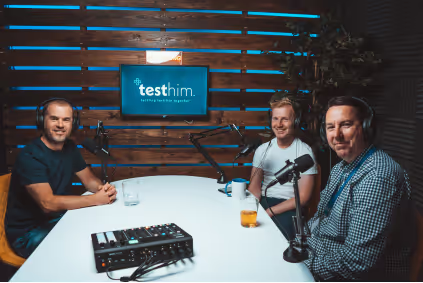Since many people are suffering from depression, anti-depressants are a huge part of our lives with recent data showing a significant growth in their use and prescription. Figures published by the NHS Business Services Authority (BSA) have shown that in 2021/2022 83.4 million anti-depressant items were prescribed representing an increase of 34% over six years.
Although women are twice as likely to be prescribed anti-depressants compared to men, there were still 2.8 million men who took them in 2021/2022.
Is this another part of the male fertility problem? Undoubtedly!
Despite being one of, if not, the most prescribed drugs amongst the adult population in the UK there is very little human research into the affect anti-depressants have on male fertility.
The majority of research seems to be on mice and rats, and as is often the case, there are conflicting results. Nonetheless, there are more than enough papers to demonstrate that some forms of anti-depressants have a significant impact on sperm health and sexual function.
Are all anti-depressants the same?
No, as with many medications anti-depressants come in a variety of forms with different modes of action.
Types of anti-depressants include:
- Selective Serotonin Reuptake Inhibitors – SSRI’s
- Serotonin – noradrenaline reuptake inhibitors – SNRI’s
- Noradrenaline and specific serotonergic anti-depressants – NASSA’s
- Tricyclic antidepressants – TCA’s
- Serotonin antagonists and reuptake inhibitors – SARI’s
- Monoamine oxidase inhibitors – MAOI’s
The most likely drug to be prescribed for depression are the SSRI’s which are often seen as the 1st line of attack. These drugs have many different brand names but all work in a very similar way.
Brand names include:
- citalopram (Cipramil)
- dapoxetine (Priligy)
- escitalopram (Cipralex)
- fluoxetine (Prozac or Oxactin)
- fluvoxamine (Faverin)
- paroxetine (Seroxat)
- sertraline (Lustral)
- vortioxetine (Brintellix)
From the research we reviewed, there was evidence to consistently support an association between the use of anti-depressants and an impact on sperm health.
Having said that, there were other groups of medication where the evidence was not quite as strong with one medication (venlaflaxine) even showing antioxidant properties that actually improved sperm quality. Nonetheless, the vast majority of evidence implies that anti-depressants are not good for sperm!
How do anti-depressants affect sperm?
Yet again, despite their hugely common use there is little understanding as to how anti-depressants affect sperm quality. What is known is that many of the side effects listed below are common:
- decreased libido
- delayed ejaculation
- alteration of circulating hormones
- erectile dysfunction
- decreased count and motility
- increased abnormal morphology
- increased DNA fragmentation
One aspect that could be significant is the build-up of serotonin within the blood for patients on SSRI’s. Many male reproductive organs including the testes, epididymis, vas deferens, Leydig cells and Sertoli cells contain serotonin receptors.
SSRI’s main role is to stop the re-uptake of serotonin which leads to an increase in serotonin levels within the blood and thus improves mood. It is thought that high levels of serotonin are detrimental to sperm health and will impact all areas within the reproductive system where serotonin receptors are present.
It was also proposed in several papers that oxidative stress is a likely contributing factor to the impact on sperm quality. Oxidative stress occurs when the normal physiological balance between reactive oxygen species (ROS, also sometimes referred to as free radicals) and antioxidants is shifted to the ROS or oxidants, thus causing an unphysiological (unhealthy) state. Oxidative stress is well known to have a serious impact on male reproductive functions and sperm quality and is also associated with increases in sperm DNA fragmentation (damage).
A further compounding issue noted in some studies is that anti-depressants have also been shown to decrease glutathione levels which is our bodies own natural antioxidant. Hence, not only are anti-depressants increasing oxidative stress, they also decrease our natural ability to counteract that oxidative stress.
So, although the true mechanism of damage is not known or understood, it looks like oxidative stress is one of the key players which will affect sperm count, motility, morphology and cause DNA fragmentation.
The fact that some anti-depressants impact hormone levels will further compromise sperm quality and may also be a contributing factor to a decrease in libido and ejaculatory disorders.
Interestingly, many papers referred to the fact that SSRI’s are often prescribed to men who suffer with premature ejaculation due to the fact that they are known to delay ejaculation. Research has shown that the longer a man is on anti-depressants, the greater is the delay between stimulation and ejaculation. This is another sign that these drugs alter the male reproductive system and therefore male fertility.
It’s not forever!
What appears to be key in terms of the level of impact is the dosage and duration of treatment. The higher the dose and the longer you are on anti-depressants, the worse the effect will be. However, this does not appear to be a permanent change. This was shown in many studies where men’s sperm improved within just a few weeks of stopping anti-depressants. This further fits with the hypothesis that anti-depressants contribute to oxidative stress. It implies that once anti-depressants are stopped oxidative stress declines and sperm quality improves. Consideration could be given to the use of antioxidants alongside anti-depressants to support sperm health.
It goes beyond just the men
Unfortunately, from one papers we reviewed it is not just about men taking anti-depressants. There is also some concerning data showing an impact on fertility in male offspring amongst rats where the mother was treated with fluoxetine, an SSRI. Researchers found that the medication crossed the placenta and was also present in the breast milk of the mother. The development of the rats was closely monitored and significant changes were noted in testicular development, epididymal size, seminal gland size as well as Leydig cell volume.
Much as some research has shown that changes to sperm health improved once treatment was stopped in adults, the changes that could occur during development and puberty of offspring exposed to SSRI’s are more likely to create permanent issues that will be reflected in adult life with poor sperm quantity and quality.
Concerning as this may be, one must not forget that depression during pregnancy and the post-natal period can have serious implications for both the woman and the child. The use of anti-depressants is an important part of helping women cope with a very difficult phase and all factors should be considered including the long-term health and fertility of the child.
What can you do?
Anti-depressants are an important medication and could be a significant part of someone’s ability to cope with day-to-day life. Struggling to conceive is a minefield of emotions at the best of times. It could be that anti-depressants are part of the problem, but they may also be an important part of an individual’s coping strategy.
Coming off anti-depressants is not something that should be done lightly, nor should it be done without medical supervision. It is also important to consider what led a man to be on anti-depressants in the 1st place. It is well researched that depression also has an impact on sperm health. Men with depression are likely to have lower levels of testosterone, lower sex-hormone binding globulin, DHEA’s along with higher levels of cortisol and prolactin. All of which are detrimental to sperm health. Therefore, it may be a case of finding the balance between the two.
Managing depression and fertility can therefore be a very complicated picture and extends beyond just depression with anti-depressants being used for other conditions such as anxiety, PTSD, OCD and more which further complicates the management of medication and fertility.
Medical advice and guidance are absolutely essential when working out what the best course of action is.
It is, however, reassuring that sperm quality can improve when medication is stopped and it may be that reducing the dosage will also help. The use of antioxidants such as Proxeed or M+ may also prove beneficial alongside healthy lifestyle and diet choices to limit the impact of oxidative stress from anti-depressants.
The key take away here is to seek medical advice about how to manage your medication and fertility and make sure you are properly supported whatever you choose to do.
Research reviewed
- Erdemir F, Atilgan D, Firat F, Markoc F, Parlaktas BS, Sogut E (2014); The effect of sertraline, paroxetine, fluoxetine and escitalopram on testicular tissue and oxidative stress parameters in rats. Int Braz J Urol 40: 100-108
- Riggin L, Koren G (2015); Effects of selective serotonin reuptake inhibitors on sperm and male fertility. Can Fam Physician 61: 529-530
- Beeder LA, Samplaski MK (2020); Effect of antidepressant medications on semen parameters and male fertility. Int J Urol 27: 39-46
- Koyuncu H, Serefoglu EC, Yencilek E, Atalay H, Akbas NB, Sarıca K (2011); Escitalopram treatment for premature ejaculation has a negative effect on semen parameters. Int J Impot Res 23: 257-261
- Sołek O, Mytych J, Tabęcka-Łonczyńska A, Koziorowski M (2021); Molecular consequences of depression treatment: A potential in vitro mechanism for antidepressants-induced reprotoxic side effects. Int J Mol Sci 22: 11855
- Oliveira Monteiro Filho W, de Torres SM, Accioly Lins Amorim MJA, Andrade AJM, de Morais RN, Mendes Tenorio, B da Silva Junior VA (2014); Fluoxetine induces changes in the testicle and testosterone in adult male rats exposed via placenta and lactation. Syst Biol Reprod Med 60: 274-281
















.png)

